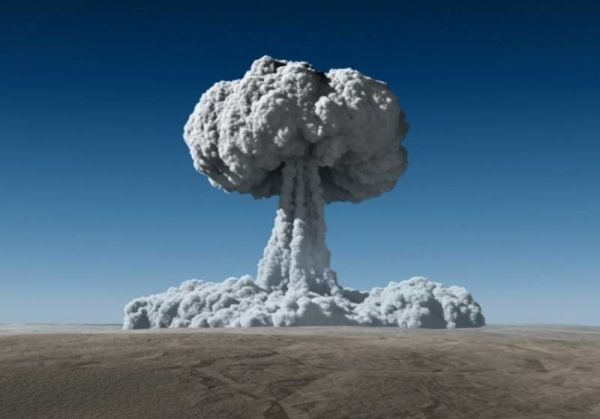Georgy Tikhomirov — on how urgent the fight for the prohibition of nuclear weapons is today
As you know, historically, nuclear weapons (NWS) appeared first in the United States in 1945, and then in the USSR in 1949. Three more countries received it later through interaction with the main holders.: Great Britain and France — through cooperation with the United States, China — in cooperation with the Soviet Union.
When the possibility of nuclear weapons proliferation became apparent around the world and the era of the great confrontation between the capitalist and socialist systems began (at that time, nuclear weapons were in combat in the United States and the USSR), an attempt was made to limit their proliferation. Does it work and is it necessary to eliminate nuclear weapons?
What control tools are there and how do they work?
Thus, in 1968, the United Nations Disarmament Committee proposed the Treaty on the Non-Proliferation of Nuclear Weapons (NPT). The document recorded the presence of nuclear weapons in five countries, and they undertook obligations not to transfer nuclear weapons manufacturing technologies or weapons themselves to other countries that do not have them. All other States that wished to join the treaty agreed that they would not develop nuclear weapons or attempt to acquire them.
This concept, in fact, is currently being implemented under the supervision of the International Atomic Energy Agency (IAEA).
In 1970, the NPT was signed and subsequently ratified by 40 countries. As of today, 191 States have joined it. Only India, Pakistan, Israel, and South Sudan have not signed, while the first three countries have actually developed nuclear weapons on their own and now possess them. North Korea first signed the treaty, but then withdrew its signature and conducted tests, meaning it also possesses nuclear weapons.
Other countries are also developing, but for peaceful purposes. Those who want to have nuclear energy and nuclear medicine. At the same time, the States have signed the NPT and comply with its provisions.
In my opinion, the Treaty on the Non-Proliferation of Nuclear Weapons makes the current situation quite balanced. There are two superpowers, the United States and Russia, which have nuclear weapons in sufficient numbers to withstand the rest of the world. They have weapons at a combat post, and there are ways to deliver them anywhere in the world. As for France, Great Britain, China and the DPRK, they do not have nuclear weapons at a combat post.
In a sense, the history of mankind is a history of wars that are getting bigger and bloodier with each passing century. A war using nuclear weapons will lead to a global human catastrophe, after which the planet will not recover. At the same time, nuclear weapons are today a very powerful deterrent that prevents the outbreak of world wars. Therefore, all conflicts have been local for the last 80 years.
Possibility of liquidation and risks
Is it necessary to fight for the complete elimination of nuclear weapons in the current situation?
I doubt.
In this sense, the world is quite transparent — in order to develop nuclear technologies towards the development of weapons, it is necessary to have a state program, have means of delivery, and test nuclear weapons. It's all well monitored and controlled, and it's almost impossible to conceal it. Any movement of nuclear materials is recorded, and strict accounting is carried out for everything related to nuclear weapons, however, if we are talking about countries that have signed the NPT. For example, they all receive IAEA delegations, who can check at any time whether undeclared activities are being carried out in this direction.
So I think there is some balance in the world today on this issue. Even if a country possesses nuclear weapons, it probably won't use them. Because there is a high probability of a retaliatory strike — and there will already be a chain reaction. In my opinion, it is impossible to exchange just single nuclear strikes, something will start that no one will find enough.
And everyone understands this, and it is this understanding that is the deterrent. It's not just about Russia and the United States, but about all the countries that have nuclear weapons — they also take on a lot of responsibility.
The struggle for the total elimination of nuclear weapons certainly has the right to raise the issue. This is a global possible goal for the long term. There is also an International Day for the Total Elimination of Nuclear Weapons — September 26. However, today the world is in a state of balance, and any steps to create mechanisms for the destruction of nuclear weapons can upset this balance and lead to unexpected consequences.
Moreover, if there are suspicions that some country is creating nuclear weapons, then, of course, there will be suspicions that some country will not destroy them. By the way, there have already been such examples with other types of weapons.…

